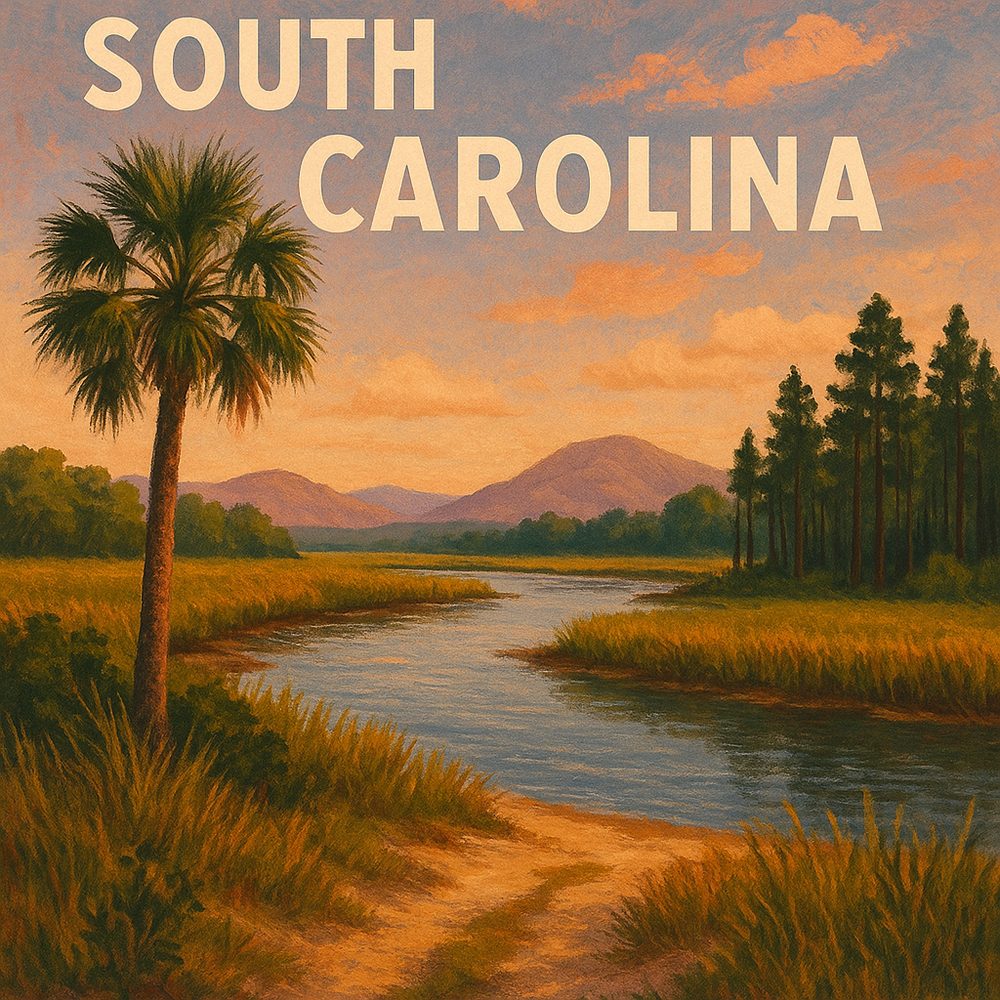Weird Laws Still on the Books in South Carolina

In Charleston, a city steeped in history and charming cobblestone streets, the Old Slave Mart Museum offers a sobering glimpse into the past with its focus on the domestic slave trade. Located just a short walk from the historic district, this museum transports visitors back to a time when laws upheld practices now regarded as abhorrent. While walking through its exhibits, you can reflect on how some outdated laws linger in the background of modern life. Charleston’s legal architecture, including the stately courthouse on Broad Street, stands as a reminder of evolving statutes. Visiting Charleston in the cooler months, when the humidity lifts and the city is alive with colorful festivals, allows for a more comfortable exploration of these weighty topics grounded in real places.
About an hour’s drive west of Columbia lies Congaree National Park, a lush wilderness where towering hardwoods create one of the largest intact old-growth bottomland forests in the U.S. The Boardwalk Loop is a gentle, two-mile trail that offers a chance to witness wildlife and ancient trees. While Congaree is primarily known for its biodiversity, it also serves as a quiet place to contemplate how certain local laws, like those regulating hunting or timber use, have governed human interaction with nature over the centuries. Visiting in spring brings vibrant wildflowers and migratory birds, perfect for those wanting to see South Carolina’s natural heritage alongside its legal peculiarities.
In Greenville, about a two-hour drive northwest of Charleston, the Liberty Bridge in Falls Park on the Reedy combines modern design with historic context. Spanning a cascading waterfall, this pedestrian bridge invites visitors to stroll while learning about the city’s transformation from mill town to cultural hotspot. Greenville’s city ordinances sometimes reflect unique local quirks—like restrictions on public gatherings or even specific animal control laws—reminders of how communities balance order with openness. Early evening visits here are especially magical, as the setting sun catches the water and the city lights twinkle, embodying the blend of old and new that characterizes South Carolina.
Traveling to Beaufort, situated about 2.5 hours south of Columbia along the coast, you find yourself in a town where antebellum architecture anchors the streetscape. The Beaufort History Museum offers engaging exhibits on the Lowcountry’s rich past, including the complex legal codes that governed its society. Beaufort’s unique position as a coastal town with a deep history of maritime law and fishing rights makes it an ideal place to explore how some archaic statutes about waterways and commerce are still technically enforceable. The town’s waterfront promenade is best experienced in the fall, when the weather is mild and the air carries the scent of salt and pine.
On the outskirts of Rock Hill, about 25 miles south of Charlotte, North Carolina, the Glencairn Garden offers a serene spot to ponder nature and history alike. This sprawling garden features a variety of themed areas, from rose gardens to woodland walks. Nearby, Rock Hill’s public spaces reflect an interesting set of municipal laws, some of which are vestiges of earlier eras—like regulations on skateboarding or the presence of certain animals in parks. Visiting during spring brings the gardens into full bloom, making it a perfect time to consider how laws shape public life, even in seemingly simple settings like a garden.
In the heart of Columbia, the South Carolina State House stands as a living monument to the state’s legislative history. Guided tours shed light on the building’s architecture and the evolution of laws passed within its walls. While modern statutes dominate the agenda, odd and outdated laws occasionally pop up in legislative debates, remnants of a different time. Visiting during the morning, especially in spring or fall when the weather is mild, allows visitors to appreciate the marble and granite façade alongside the surrounding gardens, where residents and tourists alike reflect on the state’s legal storyline.
The town of Aiken, about 20 minutes east of Augusta, Georgia, is known for its equestrian culture and historic districts. The Aiken Thoroughbred Racing Hall of Fame and Museum celebrates the city’s love affair with horse racing, a sport often governed by its own set of strict and sometimes peculiar laws. Local ordinances around horse ownership, trail use, and even betting rules have evolved but never entirely erased older statutes that can seem unusual today. Visiting in the winter months, when the racing season heats up and the mild climate is ideal, immerses travelers in the living history of a place where sport and law intertwine in uniquely Southern ways.